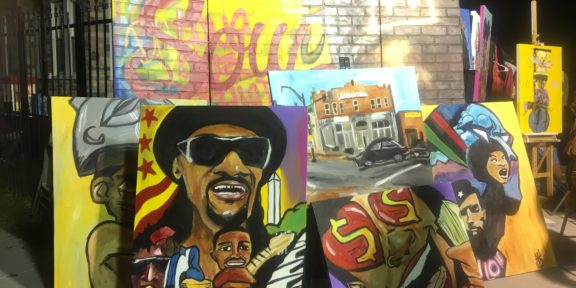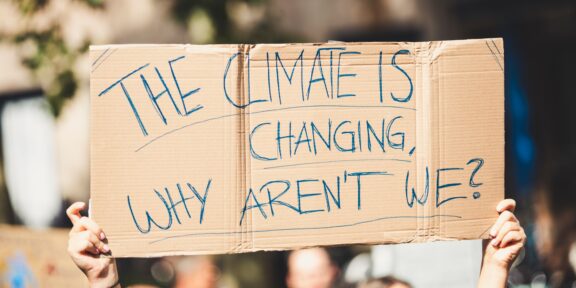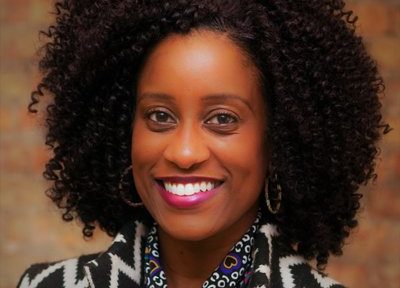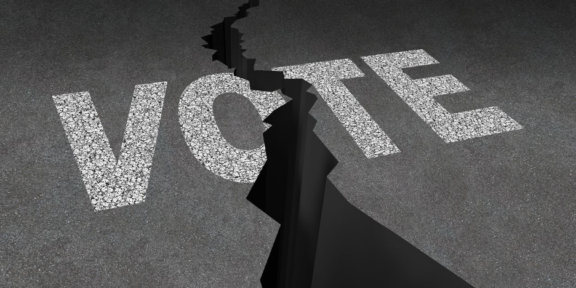Lezley McSpadden seems to be in another place when she speaks about her son. In a room full of Howard law students, she slowly recounts what happened on August 9, 2014, a tragic event that motivated many of those students to pursue careers in law.
“We all know what happened in Ferguson on August 9, 2014. Middle of the day. Broad daylight. My son, Michael Brown.” She takes calculated pauses as she recounts every detail.
The killing of 18-year-old Michael Brown by a 28-year-old police officer, Darren Wilson, was one that captured the nation’s attention. Brown was unarmed, but was shot within 90 seconds of encountering Wilson. His body lay in the street approximately four hours. The killing sparked nationwide protests and birthed the slogan, “Hands up, don’t shoot.”
In partnership with Howard University School of Law’s Thurgood Marshall Civil Rights Center, McSpadden addressed the students at Howard Law last week, speaking about the Mike Brown Bill that the center has collaborated with her on, in efforts to create this legislation at a federal level. She also mentioned her bid for Ferguson City Council, which sparked from her noticing a lack of change since her son’s killing.
The Thurgood Marshall Civil Rights Center opened in 2017 with the mission of “community-driven legal work that promotes positive change all over this country through criminal justice reform, the expansion of access to educational opportunity, and the pursuit of immigrant rights, human rights, and economic empowerment for marginalized communities,” according to Dean of the Law School, Danielle Holley-Walker.
The Mike Brown Bill’s aim is to create greater accountability for police killings. One of its initiatives is to promote independent civilian review boards to evaluate police officers’ actions and interpret wrongdoing. The bill would also create a Mike Brown fund to provide funding for victims and their families, both for compensatory damages and to provide for mental health provisions.
“On August 10 [2014], I got a call from a detective. What he told me was that the person who shot my son would get two psychological tests and he would return to work. Never did he ask me how was my psyche,” said McSpadden. “I had to sit with that for a while. I just didn’t know how I was going to get up the next day, brush my teeth, take a shower, put one foot in front of the other.”
McSpadden eventually recognized that she was experiencing mental illness, so she started a nonprofit group called Rainbow Mothers with the intent of providing therapy for mothers like herself. This also inspired the mental health component of the bill. She also emphasized the importance of controlling the narrative around mental illness in the African-American community, which she called a public health epidemic.
Despite what happened to her son, she maintains that the community needs police officers, but that the police, as an establishment, should be reformed. She stresses the importance of having familiar police officers. “The police should live in the neighborhood, and you should be familiar with the neighborhood that you are going to be in. If not, go back home and stay at home.”
Wilson was raised in St. Peters, Mo., a majority white suburb of St. Louis. In a 2015 interview, he told the New Yorker that he had “never been in an area where there was that much poverty,” which led him to feel “intimidated and unprepared,” when interacting with the residents of southern Ferguson, which was 90 percent black with a quarter of those people below the poverty line.
By the time the floor opened for questions, several hands shot into the air. There were as many emotional “thank you’s” as there were questions. Law students echoed their gratefulness for McSpadden’s sacrifice. The loss of her son paved the way for the students sitting before her. Some, teary-eyed, expressed their motivation for pursuing a career in law because of Brown.
Amber Joyner, a second-year law student stressed the significance of McSpadden’s address. “To have someone who is at the forefront of the Black Lives Matter movement, who really started speaking out against police brutality, and when this issue became essentially mainstream, someone who continued to fight and continued to make the sacrifices that it takes to push forward this type of work despite their own tragedies, it’s like how could you not come?”









